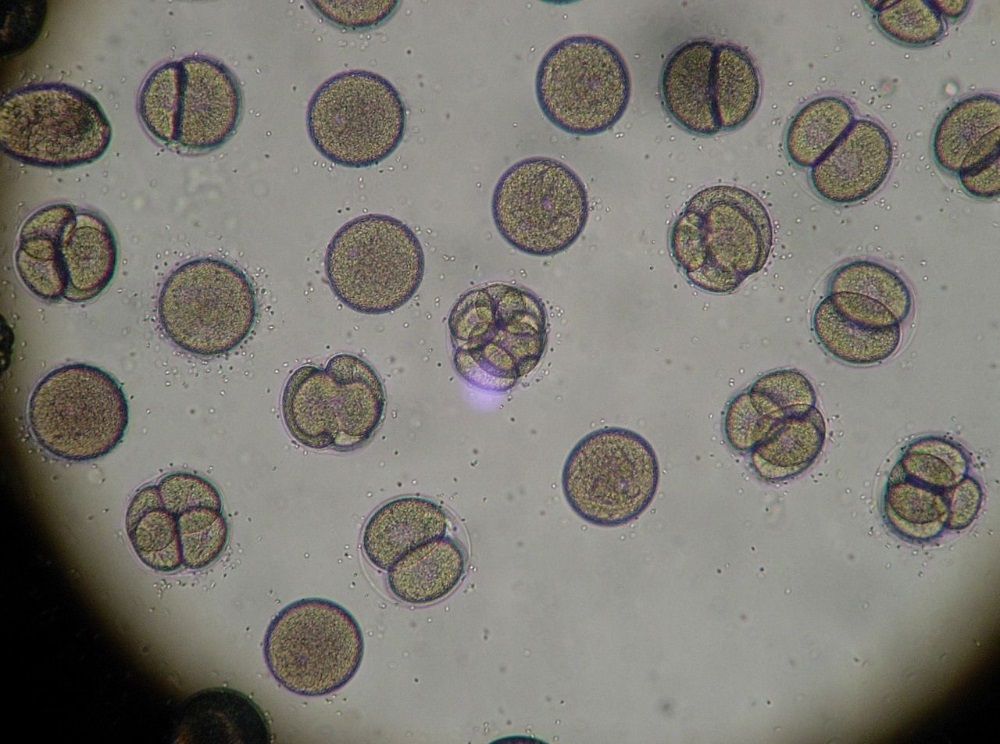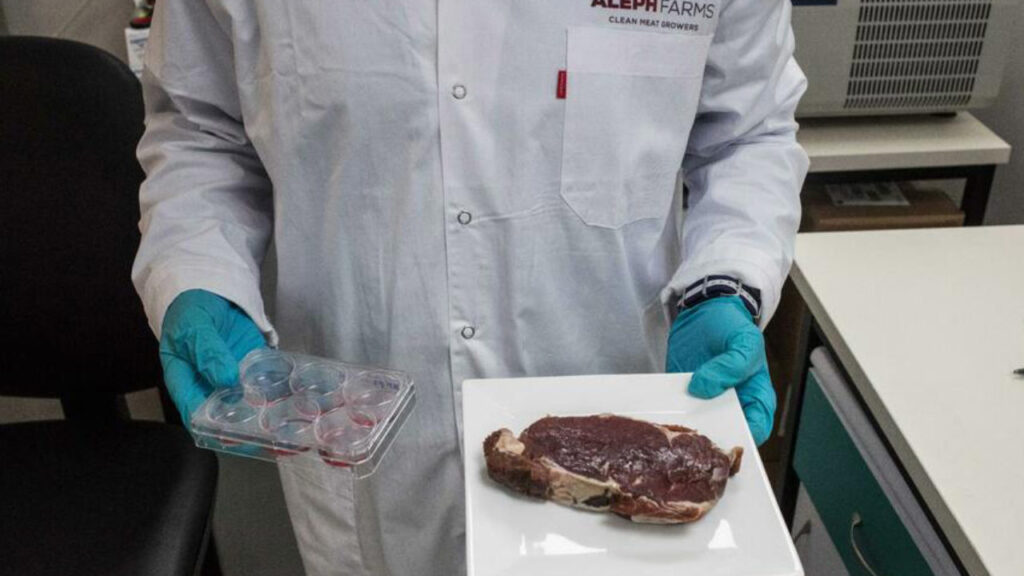The kosher status of cultivated meat products is a topic of great importance for the future of kashrut. It has the potential to set new precedents in this field.
Israel, despite the ongoing war, persists in moving forward, constructing, and making contributions to the world.
Israeli regulatory authorities recently approved the commercial sale of cultivated meat on January 17. This makes Israel one of the few countries that have given the green light for selling lab-grown meat. Moreover, Israel is the first country to authorize the sale of a food product that includes lab-grown beef cells.
Israel is one of the first countries to allow the commercial sale of these products. This is not surprising, given our abundance of start-ups in this technology.
Aleph Farms, Steak Holder Foods, Meat. The End (MTE), and SuperMeat are among the companies whose products have received approval.
Cells are taken from a living entity and manipulated to grow in a lab. This process is used to create a product that closely resembles conventional meat in taste and texture.
Countries have grappled with the challenge of determining which regulatory agency should be responsible for licensing this innovative technology. The United States, for instance, engaged in a heated debate over whether it should be the FDA, USDA, or another agency. Eventually, the USDA was chosen as the designated authority.
The person responsible for approving the product has a challenging task at hand. They must analyze issues of toxicology, allergenics, nutrition, microbiology, and chemistry. In countries like Israel, the US, and Singapore, where these products can be sold commercially, it has been determined that they are safe for human consumption.
The Jewish world is grappling with the impact of new technology.
Kashrut-certifying agencies and halachic Rabbis will have to assess the kosher status of cultivated meat. The first question is whether it can be considered kosher. If it is deemed kosher, the next issue is whether it will be classified as “meaty” or pareve.
The impact of this new technology on the Jewish world is significant. However, there is little precedent in the Talmudic literature to guide decisions regarding its use. This technology is so groundbreaking that even the most knowledgeable rabbis find it challenging to find applicable sources.
The debate over the kosher status of cultivated meat began about ten years ago. At first, the focus was on general principles and broad terms. Rabbinic authorities have been engaged in this discussion.
In recent years, the halachic analysis has started focusing on specific methods due to advancements in technology. It is important to note that each company has its own procedures for obtaining starter cells, and their processes for replication and differentiation can vary greatly. Therefore, making generalized statements like “cultured meat is kosher” or “cultured meat is not kosher” is meaningless. These broad declarations demonstrate a lack of understanding of the scientific complexities involved.
Cultured meat has the potential to be made kosher.
The technology itself does not inherently prevent a kosher product from being created. As long as the starter cells come from a source with a clear kosher status and laboratory techniques avoid introducing complications, there shouldn’t be a reason why the product wouldn’t be kosher. So, the important question to consider is which source meets these criteria?
Aleph Farms, a company based in Rehovot, has gained Israeli regulatory approval for their innovative method. This case study offers a fascinating opportunity to explore the question at hand. However, finding a simple answer is not as straightforward as one might expect.
The technology used by Aleph Farms is advanced, but the source of the initial cells is quite simple
They employ a technique that originated in the dairy industry, where they wash out a pre-embryo from a cow’s uterus after a few days and collect pluripotent stem cells.
The interesting thing about this from a halachic perspective is that the cells come from a living cow. Normally, anything that comes from a living animal is not considered kosher.
The pre-embryo is not yet implanted and can be seen as separate from the cow. However, it was recently a part of the ovary and was attached to the cow. If left alone, it will attach to the uterine wall and become part of the cow again.

There is a general consensus that if an egg is taken from the ovary, it and its derivatives would not be considered kosher. Similarly, if cells are extracted from an implanted fetus, they would also be deemed not kosher due to their origin from a living being. The crucial question remains about what occurs during the intermediate stage.
Does the prohibition that was in place when it was in the ovary vanish and then suddenly reappear once it implants?
Israel’s Ashkenazi Chief Rabbi David Lau holds the position that a fertilized cow egg, soon to be implanted, is considered a “waste product” under Jewish law. This determination, based on an enigmatic Talmudic passage, was made after Rabbi Lau visited Aleph Farms last year. It would allow the product to be considered kosher. However, this conclusion has been disputed by many esteemed halachic authorities.
Disagreement arises over Rabbi Lau’s scientific statements about eggs, including the claim that most eggs are spontaneously expelled even if fertilized. Additionally, there are competing interpretations of the Talmudic passage.
Aleph Farms has the option to address halachic concerns and create a kosher product that satisfies even the most observant kosher consumers. They can achieve this by using starter cells obtained from a pre-embryo washed from a cow’s uterus following kosher slaughter. This approach would result in a significant amount of cultivated meat from just one cow, benefiting consumers, cows, and the environment.

Israeli technological prowess was demonstrated in a recent development, which Israelis should be proud of. Aleph Farms and the regulatory authorities deserve credit. However, caution is necessary. The kosher status of cultivated meat products is a significant issue for the future of kashrut and may set new precedents in this area.
All parties involved should exercise caution and refrain from making hasty judgments. This includes local and international kashrut agencies like the Orthodox Union, the badatzim, and the Israel Chief Rabbinate.
No single individual can make such an important decision. It is hoped that careful analysis and discussion will lead to a consensus on the matter.
Ari Zivotofsky, a professor of neuroscience at Bar-Ilan University, and Joel Kenigsberg, the rabbi of the Beit Knesset Hanassi synagogue in Jerusalem, are experts in kosher aspects of cultured meat. They have published and lectured about the subject internationally.
Recommend0 recommendationsPublished in Opinion
Responses